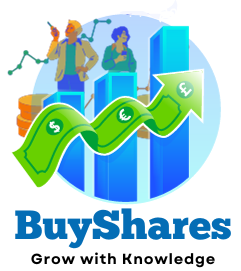Expensive stocks can be seen as a symbol of a company’s success, with some share prices soaring into the four digits. For certain investors, a high share price is a testament to a company’s impressive performance over recent years.
However, the dollar price of a stock alone doesn’t reveal much about the company’s underlying value. A high share price often reflects the company’s ownership structure rather than its business fundamentals. Despite the allure, expensive stocks might deter investors who feel there’s limited upside or who may not afford a single share.
In this post, we will explore the eight most expensive stocks traded on major exchanges and discuss the pros and cons of investing in these expensive stocks.
8 Most Expensive Stocks Right Now
Below are the eight most expensive stocks currently traded on major stock exchanges:
1. MercadoLibre Inc. (NASDAQ: MELI)

MercadoLibre, with a stock price of $1,695.29, has a market capitalization of $88.1 billion. Over the past decade, it has delivered an average annualized return of 34.9%. As the largest e-commerce marketplace in Latin America, MercadoLibre is often compared to Amazon.com (AMZN) for its market dominance. As of December 2021, the company boasted over 140 million users and 1 million sellers across 18 countries. Its business segments include shipping, payment and financing, advertising, and classifieds. Revenue streams come from final payments, advertising, processing payments, subscriptions, and other operations.
2. White Mountains Insurance (NYSE: WTM)

White Mountains Insurance trades at $1,718.90 per share, with a market capitalization of $4.5 billion and a 10-year average annualized return of 11.7%. It is a diversified insurance and financial services holding company with a 30-year history. It has owned and operated various insurers, financial guarantors, brokerages, reinsurers, service companies, and investment advisors. Despite its relatively small business size, with $1.16 billion in total revenue in 2022, White Mountains maintains a high share price.
3. First Citizens BancShares (NASDAQ: FCNCA)

First Citizens BancShares, with a stock price of $1,733.17 and a market capitalization of $25.2 billion, has achieved an average annualized return of 23.5% over the past decade. It is the holding company for First-Citizens Bank and Trust, offering commercial banking services. The company provides traditional banking services, consumer loans, and wealth management. Founded in 1898 as the Bank of Smithfield and headquartered in Raleigh, NC, First Citizens has a long history of stability and growth.
4. AutoZone Inc. (NYSE: AZO)

AutoZone’s stock is priced at $2,843.84, with a market capitalization of $47.6 billion and a 10-year average annualized return of 18.9%. AutoZone is a leading auto parts and accessories retailer with over 6,500 stores in the U.S., Mexico, and Brazil. The company primarily serves do-it-yourself shoppers but is expanding its commercial customer base. The average age of vehicles on U.S. roads, which reached a record high of over 12 years in 2022, supports AutoZone’s sales and its high stock price.
5. Seaboard Corp. (NYSEAMERICAN: SEB)

Seaboard trades at $3,060 per share, with a market capitalization of $3.2 billion and a 10-year average annualized return of 2.1%. Seaboard is a Kansas-based multinational agribusiness and transportation conglomerate. Its diverse business divisions include Seaboard Foods premium pork products, Seaboard Marine ocean transport, Seaboard Overseas and Trading Group, Butterball turkey products, and Mount Dora Farms jalapeno processing. Although its shares have lagged the S&P 500, Seaboard’s diversification helps mitigate investment risk.
6. Booking Holdings Inc. (NASDAQ: BKNG)

Booking Holdings has a stock price of $3,967 and a market capitalization of $126.2 billion. Its 10-year average annualized return is 11.2%. Booking Holdings operates leading online travel platforms, including Priceline.com, Booking.com, Agoda, and OpenTable. It allows customers to book hotel rooms, airline tickets, rental cars, restaurant reservations, cruises, and vacation packages. The company has recovered from the COVID-19 pandemic, with record revenue and adjusted earnings before interest, taxes, depreciation, and amortization (EBITDA).
7. NVR, Inc. (NYSE: NVR)

NVR’s stock price is $7,598.23, with a market capitalization of $23.1 billion and a 10-year average annualized return of 20.7%. NVR is one of the largest U.S. homebuilders, focusing on single-family detached homes. It also has a mortgage and title insurance business. The Federal Reserve’s interest rate cuts in 2020 spurred a housing market boom, but recent rate hikes have cooled the market, affecting NVR’s growth outlook.
8. Berkshire Hathaway, Inc. (NYSE: BRK.A)

Berkshire Hathaway, led by Warren Buffett, has a stock price of $620,800 and a market capitalization of $876.0 billion. Its 10-year average annualized return is 12.3%. Berkshire Hathaway is a multinational conglomerate holding company with a vast investment portfolio, including stocks like Apple (AAPL), Bank of America (BAC), and Chevron (CVX). While Class B shares are priced at $308 per share, Class A shares are among the most expensive stocks. Buffett has stated he will never split the Class A stock to maintain a sophisticated, long-term investor base.
Should You Invest in Expensive Stocks?
Investing in expensive stocks has its benefits and drawbacks. Understanding these can help investors make informed decisions.
Potential Benefits
- Inflation Protection: Companies with high share prices often have strong pricing power, allowing them to maintain profit margins during inflationary periods.
- Recession Resilience: Firms offering essential products or services tend to fare better during economic downturns, providing a degree of recession resilience.
- Lower Volatility: Top-performing stocks generally experience fewer price fluctuations and smaller losses during market downturns.
Drawbacks
- Underperformance: Stocks trading at high valuations might lag behind indexes for much of a market cycle before catching up, posing a risk of underperformance.
- Higher Opportunity Cost: Investing in expensive stocks may result in missed gains from alternative investments in up-and-coming stocks, where the potential for growth could be higher.
Final Thoughts
Investing in the most expensive stocks can be a double-edged sword. While these stocks can symbolize a company’s success and offer certain advantages like inflation protection and lower volatility, they also come with drawbacks such as potential underperformance and higher opportunity costs. Investors must weigh these factors carefully and consider their investment goals, risk tolerance, and portfolio diversification strategies before committing to high-priced shares.
Also read: The 10 Most Promising Stocks to Buy for 2024


Leave a Reply